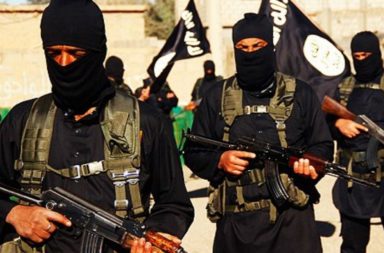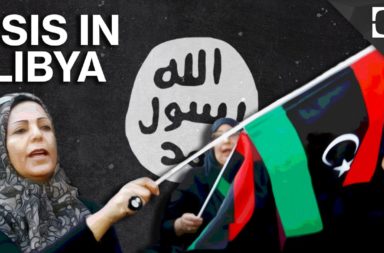Like many others I followed the news from Paris and its aftermath, with mixed feelings of shock, horror and anger. Many detailed articled provide in-depth rundowns on what happened, and many others on the economic consequences what it could mean for Europe’s future. We know ISIS was behind it, with ISIS confirming via a statement, which according to one NY Times article was “distributed via its supporters on Twitter”. Another article noted “ISIS affiliated accounts on Twitter claiming the Paris attacks for the Islamic State are using the hashtag ’Paris on Fire’”.
Twitter is a powerful marketing tool used by individuals and organizations alike and, as it seems, ISIS is apparently no exception. According to one study, there were an estimated 46,000-70,000 ISIS supporters on Twitter at the end of 2014. But how did words like “twitter” and “hashtag” come to be casually dropped into the same sentence as “terrorist” and “ISIS” anyway? Do terrorists sit down and have brainstorming sessions over chai lattes for their next digital marketing campaign? How can it be apparently normal enough to be mentioned in news on an almost daily basis, and why does twitter ‘allow’ it’s service to be used this way to such devastating extent?
I’m not the only one who has felt confused over this issue. For example, a post on Quora asks the same question. On twitter itself twtters on the question are easily findable :
https://twitter.com/sarahvine/status/502566699846352897
By reading the answers on these posts, a lot of conifident, but mixed answers are to be found. Some claim it’s too hard to control the amount of content twitter deals with, and track and block the terrorists effectively. Another common thought appears to be that even when one account is shut down, another will simply take its place all too easily. Others say that it’s silently allowed as it’s actually useful to organizations such as governments and law enforcement to make use of the information – in other words, cleverly letting the terrorist group do the work for us. Concerns over preserving our own freedom are another common response – a fear that to stamp out ISIS tweets completely would require handing over an uncomfortable level of power to government and law enforcement that would cost us our own freedom – exemplified in retorts such as “so only US-approved accounts can be on twitter?”
Whatever one’s view on the matter, everyone agrees on one point; the troubling fact that the extremist group is so effective at utilizing social media to spread its gospel of terror and surging its ranks that it probably makes some online marketers look on in agonized envy. ISIS even launched its own app in the Google Play store – this outlet, at least, was removed. Twitter however remains the group’s favored outlet – usually through its supporters – and surely continuing to allow the terror group to leverage such an opportune tool will only further their cause of death and destruction.
What does Twitter think of its platform being used by a terrorist group to recruit and spread terror? The answer seems muddled. Twitter has removed ISIS-linked accounts, and some take this to indicate a stance against the terrorist group – but this does not necessarily mean Twitter has an official policy. According to the article “Twitter Is Not at War With ISIS“, an unnamed “Twitter company official” claimed the tech firm isn’t interested in “silencing political speech”. Rather, Twitter basically only bans people who breach its terms of service, and since the terms of service don’t prohibit “being a terrorist”, ISIS accounts aren’t, by default, bannable. Islamic State supporters are technically free to use Twitter to recruit and spread its extremist propaganda – as long as they don’t make violent threats or pirate music. As we all well know, pirating music is definitely worse than terrorism.
Even if twitter doesn’t actively prohibit ISIS supporters, does the company provide information to government or law enforcement agencies? Apparently not – over 2,000 requests for information came from 54 different governments and law enforcement agencies—but twitter rarely releases anything. In New York after a Twitter account took credit for replacing US flags over the Brooklyn Bridge, police requested Twitter hand over information related to that user. The police had to take Twitter to court – and even then Twitter won the right to tell the users that their information had been requested. It’s also worth noting that Twitter is not a part of the shadowy PRISM project; a intelligence partnership between the NSA and social media companies, including Facebook and Google.
Is the prevalence of ISIS and its supporters on Twitter due to it being an impossible task to stamp them out completely? One article suggests it may be a factor, as ISIS do seem to simply just make new accounts as soon as another is disabled. But do we also allow ISIS to maintain this public presence so that we can more easily monitor and track them, and perhaps even use this information against them? There may be some support for that theory. After a suspension of 2,000 ISIS-linked accounts, an ABC News report noted that U.S. intelligence acknowledged it “would prefer the accounts stay open for intelligence gathering purposes.” In another example, after Twitter removed of one account in June, the move actually drew criticism rather than praise, since the account had been tweeting news of ISIS’s maneuvers and providing a direct account of the group’s actions. WikiLeaks, in what can presumably be sardonic on its behalf, tweeted its condemnation:
The benefits – if they can be called that – of allowing ISIS and its supporters to utilize western-owned social media extend beyond just monitoring. Official departments such as the US State Department even jump on twitter themselves and engage directly with ISIS-affiliated accounts. For example, a user called @AbuTalhah002 tweeted “Luxury is an enemy of jihad.” The State Department replied: “Typical nonsense from extremist hypocrites—eat like kings among the starving, enjoy fanciest things…” attaching a photo of Abu Bakr al-Baghdadi, ISIS’s leader, wearing a luxury watch. It’s not just official government departments who make use of twitter for counter-terrorism purposes, either. Hacktivist collective Anonymous are once such group who recently received publicity for deciding to take action into their own hands. They’ve been active at hacking accounts since the Charlie Hebdo attacks and redoubled their efforts since the tragedy in Paris. The group doesn’t just take down accounts – it publishes the names and address of alleged ISIS recruiters and has provided valuable information to the government. Since their #OpParis campaign, Anonymous now claim to have identified a high-ranking recruiter living in Europe. Another group, Ghost Security Group, helped the US break up a militant cell in Tunisia after it provides screenshots of internal communications about an impending attack.
What next?
While these points provide some indication of how and why ISIS continues to use Twitter, we’ve really only began scratching the surface of what is a highly complicated issue. As the ISIS Twitter Census concludes:
“Each stakeholder has different interests in the problem. Counterterrorism professionals, for instance, may be highly interested in open-source intelligence about ISIS, whereas Twitter is not in the business of counterterrorism and has an interest in protecting the privacy of its users”
In addition to this, debate continues over whether removing ISIS from Twitter would cause more harm than good. Social media content has proven to be useful to governments and law enforcement in combatting the terror group. On the other hand, the Islamic State is exploiting social media to draw in people vulnerable to radicalization, and allowing this activity to continue surely will continue to enable the group to spread terror and death.





